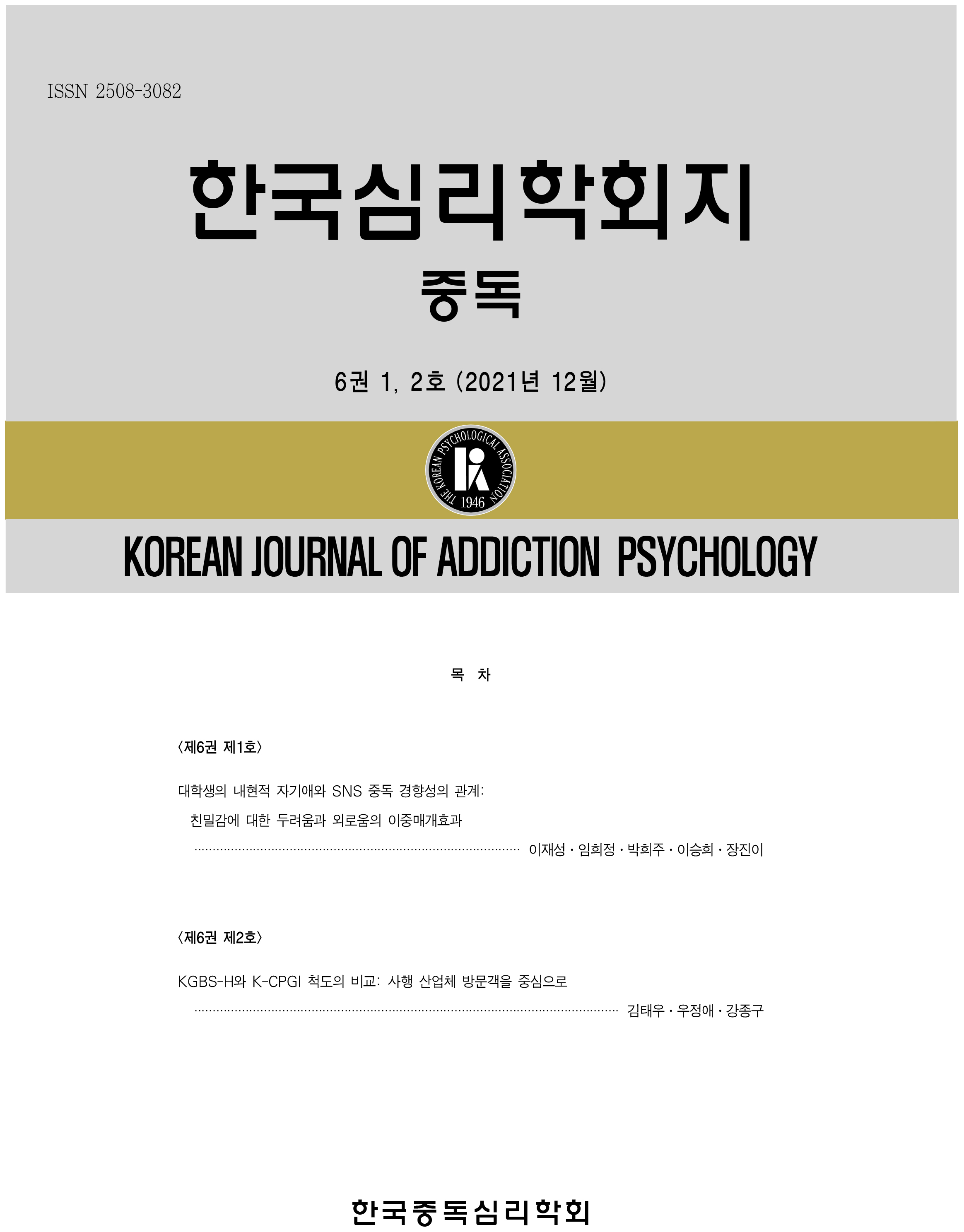Korean Journal of Addiction Psychology
- P-ISSN2508-3082
- E-ISSN3091-6054
 ISSN : 2508-3082
ISSN : 2508-3082
Vol.3 No.2
Abstract
Addiction is associated with unhappiness. In order to prevent serious adolescent addiction, it is necessary to improve the happiness of the adolescent. At home, school, society, etc., the adolescent must be happy so that they do not escape to the addictive subjects. First of all, the relationship with parents should be harmonious. As adolescent love themselves, and their self-esteem increases, they become happier and can get away from the addicted subject. Adolescents happiness is related to the self-esteem, resilience, relationship formation, mindfulness, compassion training and spirituality. This study has implications for the prevention of addiction of adolescents by mentioning the necessity of adolescent happiness and examining specific factors related to the promotion of adolescent happiness.
Abstract
This study aimed to understand the actual gambling status of adolescents on probation, and also to explore the relation with gambling problem focusing on the peer stress and loneliness out of the psychosocial variables having effects on the gambling addiction. For this, a survey was conducted targeting total 274 adolescents in 18 probation offices in the whole nation, and total 274 questionnaires were used for the analysis. The statistical analysis methods mainly used were the difference verification, correlation analysis, and regression analysis. In the results of this study, the 65% of adolescents on probation experienced gambling, including the speculative acts prohibited on adolescents such as the purchase of race ticket(1.8%), and the purchase of on/offline lottery ticket(21.9%). Especially, the rate of experiencing the online illegal gambling like casino was relatively high(14.6%). In the results of analyzing the gambling addiction level, the 17% of adolescents on probation were the dangerous or problematic gamblers. Also, in the results of analyzing the mediating effects of loneliness on the effects of peer stress on the gambling addiction, the loneliness significantly partially-mediated the relationship between peer stress and gambling addiction. In other words, when experiencing the peer stress, they felt lonely, which was led to the increase of gambling addiction.
Abstract
The purpose of this study is to explore a specific list of irrational beliefs that predict adolescence gambling problems. In addition, we tried to examine whether depression and anxiety promote the effects of irrational beliefs. To that end, we collected data from 659 adolescents(13-18 ages) registered On-line research company who answered that they had experienced five types of illegal gambling more than once. The list of irrational gambling beliefs used in this study was developed by referring to the qualitative research data on the development process of the youth gambling problem conducted by Kim et al.(2018) and by referring to the Irrational gambling beliefs developed for adults. The analysis identified seven irrational gambling beliefs items consisting of a single-factor structure. Each irrational gambling belief increased the frequency of illegal gambling behavior and gambling problem regardless of gender, age, and academic level. As a result of examining the moderating effects of depression and anxiety in the relationship between irrational gambling beliefs and gambling problems, it was found that the higher the level of depression or anxiety, the greater the effect that irrational gambling beliefs increase the gambling problem level appear. Finally, the results of this study were discussed in terms of youth gambling prevention and counseling.